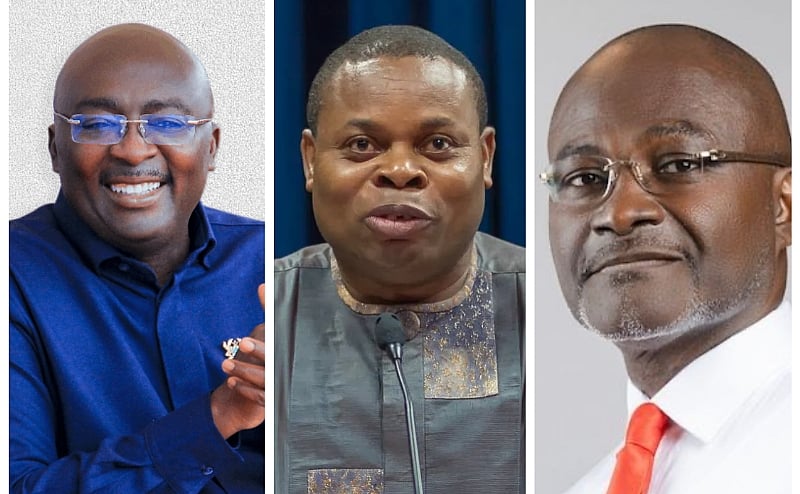The internal power struggle within the New Patriotic Party (NPP) over its upcoming flagbearer elections has drawn sharp criticism from Franklin Cudjoe, the Founding President of IMANI Africa. Cudjoe argues that the party’s preoccupation with internal squabbles, particularly the contest between Dr. Mahamudu Bawumia and Kennedy Agyapong over parliamentary endorsements, distracts from the critical task of regaining public trust and rebuilding the party after its electoral setback. He laments the decline of the NPP from its respected position under former President Kufuor, highlighting the current focus on securing the support of a dwindling number of parliamentarians (88) as a symptom of the party’s diminished stature. Instead of engaging in these internal battles, Cudjoe urges the NPP to prioritize accountability, demonstrate a commitment to recovering misappropriated public funds, and present a concrete plan for national recovery to the electorate.
The core of Cudjoe’s critique revolves around the NPP’s misplaced priorities. He sees the intense competition between Bawumia and Agyapong, characterized by claims and counterclaims regarding the number of MPs supporting each candidate, as a damaging distraction. The public spectacle of this internal power struggle, centered on securing the support of approximately 60 out of 88 MPs, underscores the party’s inward focus rather than a commitment to addressing national issues. Cudjoe implicitly questions the relevance of these endorsements in the larger context of a party seeking to regain national appeal and govern effectively. He argues that focusing on internal maneuvering undermines the party’s credibility and alienates the broader electorate.
Cudjoe further emphasizes the need for the NPP to demonstrate a genuine commitment to accountability and good governance. He advocates for the recovery of stolen public funds and the implementation of measures to prevent future corruption. This, he argues, is crucial for winning back public trust. He suggests that the party should prioritize demonstrating a tangible commitment to addressing corruption and ensuring accountability over internal power plays. A credible plan for national recovery, devoid of empty slogans and political spin, is also crucial for restoring public confidence. Cudjoe challenges the NPP to move beyond rhetoric and present concrete, actionable plans to address the nation’s challenges.
The timing of Cudjoe’s critique is significant, coming shortly after the NPP’s National Executive Council meeting which scheduled the flagbearer elections for January 31, 2026. This underscores the urgency of his message. With the election date set, the party risks becoming increasingly consumed by internal politicking. Cudjoe’s intervention serves as a timely reminder that the party’s focus should be on rebuilding its image and presenting a compelling vision for the future, rather than engaging in internal power struggles.
The contrast between the NPP’s current state and its past glory under President Kufuor serves as a poignant backdrop to Cudjoe’s critique. He evokes the memory of a once-respected and influential party to highlight the extent of its decline. The current internal wrangling, he argues, reflects a party that has lost its way and become detached from the concerns of ordinary Ghanaians. The focus on securing the support of a shrinking number of parliamentarians, rather than addressing the needs of the 276 constituencies nationwide, further illustrates this disconnect.
In essence, Cudjoe’s message is a call for the NPP to prioritize substance over symbolism. He argues that internal party endorsements and power plays are meaningless without a demonstrable commitment to good governance and a clear plan for national recovery. He challenges the NPP to shift its focus from internal maneuvering to addressing the real concerns of the Ghanaian people. Only then, he suggests, can the party hope to regain public trust and reclaim its former stature. He urges the NPP to prioritize earning the trust of the 276 constituencies across the country, rather than focusing narrowly on the endorsements of a small fraction of parliamentarians. This broader perspective, he argues, is essential for the party’s long-term viability and success.


